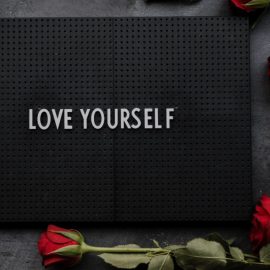

This article is an excerpt from the Shortform book guide to "Soundtracks" by Jon Acuff. Shortform has the world's best summaries and analyses of books you should be reading.
Like this article? Sign up for a free trial here.
Are you tired of being set back? How do you take action on your goals?
We all have goals we want to achieve, but life always manages to get in the way. With advice from Jon Acuff’s book Soundtracks, you can finally achieve your wildest dreams by stopping overthinking and starting to live in the moment.
Read on to learn how to take action on your goals and live out your dreams.
Your Brain Is Wired for Overthinking
Before getting into how to take action on your goals, we need to break down why it’s hard to achieve our goals to begin with. According to Acuff, it can be difficult to take action on our goals because human brains have a natural tendency toward negative overthinking. Acuff notes that your brain responds to minor negative events in a similar way to how it handles major traumas, deeply internalizing these experiences and their consequences. Your brain’s habit of latching on to negative memories makes it easier to remember failures than successes, which can lead you to form inaccurate negative beliefs about yourself.
(Shortform note: You may be more or less biologically inclined to overthinking depending on your gender. According to a recent study, on average women are more given to overthinking than men. Scientists hypothesize that women may be more inclined to overthinking due to higher average levels of frontal lobe activity and blood flow within the brain. These physiological differences also offer benefits including increased focus and intuition, alongside the drawbacks of overthinking and anxiety.)
As Acuff notes, once you’ve formed a negative belief about yourself, you’ll tend to interpret new experiences in a way that reinforces your prior negative belief, thanks to a phenomenon called confirmation bias. Because of confirmation bias, if you hold a negative belief about yourself, your brain will interpret even minor setbacks as evidence that the negative belief is true. It’s why it’s so important to replace these negative thoughts about yourself with positive, motivating ones.
(Shortform note: While Acuff focuses on how confirmation bias can reinforce negative beliefs about yourself, confirmation bias can also work in your favor. Experts say that in the right conditions, confirmation bias can help bolster confidence. The key is starting with the right belief—if you start with a negative idea about yourself, new experiences will deepen your negativity, but if you start with a positive belief, you’ll interpret everything as evidence that your positive belief is true. While Acuff doesn’t consider this potentially beneficial side effect of confirmation bias, he does offer strategies for forming positive beliefs about yourself, which you can use to take advantage of confirmation bias.)
Build Positive Habits by Taking Action
According to Acuff, it’s important that you couple your positive thoughts with action. As you take action toward accomplishing your goals and experience success, you’ll increase your confidence, which will help your positive thoughts work more effectively.
(Shortform note: As you begin the process of turning negative thoughts into positive ones, some writers believe it can be helpful to focus on smaller goals that can be accomplished in your daily life. When you accomplish these accessible, near-term goals, it’ll boost your confidence, which will enable you to tackle other daunting problems.)
Acuff recommends coupling rituals with your positive thoughts to help get in the habit of taking action. Anything you can do to create a positive association with a difficult task will help spur you to continued action. For example, if you’re struggling to make it to the gym, in addition to creating slogans around working out, you can also create rituals—for example, putting on your favorite workout gear, listening to energizing music, or taking a relaxing bath after working out.
(Shortform note: As you build positive rituals to go with your new positive outlook, be sure to choose rituals that are fun. Studies have shown that when a new habit or activity is fun, you’re more likely to return to it and stick with it longer. By contrast, if your ritual is something unpleasant, you’re more likely to be discouraged and avoid returning to it in the future.)

———End of Preview———
Like what you just read? Read the rest of the world's best book summary and analysis of Jon Acuff's "Soundtracks" at Shortform.
Here's what you'll find in our full Soundtracks summary:
- A guide to stop overthinking and start chasing your goals
- Why human brains are wired for overthinking
- How to repeat positive thoughts until they become patterns






